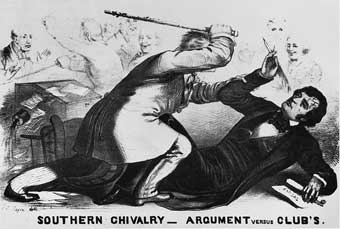| 8/4/10 -- Oh Grow Up! |
|
48% Blame Obama for Bad Economy,
47% Blame Bush
Rasmussen Reports Survey - July 30-31, 2010
Listen carefully and try to understand. Obama didn’t wreck the economy. He hasn’t had enough time to do that yet. No, Bush didn’t wreck it either. Both may have done things their opposition hasn’t liked, or the efficacy of which is in dispute, but as a general rule, Presidents don’t ruin the economy, the economy ruins them. If you don’t realize that yet, you need to spend the rest of your summer doing some remedial brushing-up before you utter another word.
Start with the following.
Excerpted from:
“The President's Effect on the Economy: Less Than You'd Think”
by: Ockham Research
A President does have an important role to play in the macro economy, but much of what a President can affect requires a “trickle-down” effect which may take years for its impact to be felt. Presidents are politicians and not economists, but so often a boom or a bust is credited to the sitting President when there was little they actually did to create the situation....
Voters should certainly be aware of each candidate’s economic philosophy and goals, but they must recognize that Presidents are one cog in the political machine. Politics rarely has an answer for a slowdown in the business cycle, inflation, or other economic challenges that are best solved by market forces. If a candidate tells you differently, don’t believe it.
Lest some be tempted to dismiss the above as the biased rant of some wild-eyed leftist activist, be advised it was written by a stock analyst, who was probably a Republican, and was published on a stock research website, Seeking Alpha, in March 2007. The guy wasn’t talking about Obama.
www.seekingalpha.com

Rep. Preston Brook (D,SC) respectfully disagrees with Sen. Charles Sumner (R,MA) on the Senate floor, 1856. His Convalescence took three years/.
(Ockham Research is an independent equity research provider in Atlanta, Georgia. Seeking Alpha is a website that publishes articles from market blogs, money managers, financial experts and investment newsletters. It says its readership includes money managers, research analysts, investment bankers and individual investors. 'Alpha' is a term referring to a stock's performance relative to the market.)
Next, do the following exercise. Explain where you would have said the economy would be this year if someone had asked you for your prediction back in March 2009. Some of you probably don't understand how you're supposed to answer the question. (But you’re certain you know whose fault it is, right?)

"Bible" riots, Philadelphia, during the 1844 Presidential election campaign.
In any event, here’s what real GDP has done over the last nine qtrs, according to the Bureau of Economic Analysis. Where, in your most wildly optimistic dreams, would you have thought GDP might get to by 2010 q2?
GDP Qtr. to Qtr.
| qtr
| gain/(loss)
|
| 2008 q1 |
-0.7% |
| 2008 q2 |
0.6% |
| 2008 q3 |
-4.1% |
| 2008 q4 |
-7.0% |
| 2009 q1 |
-5.0% |
| 2009 q2 |
-0.7% |
| 2009 q3 |
4.9% |
| 2009 q4 |
1.6% |
| 2010 q1 |
3.7% |
Here's a little more information, to help you shape your answer.
Annual Real GDP year to year
| year
| gain/(loss)
|
| 2005 |
3.1% |
| 2006 |
2.7% |
| 2007 |
1.9% |
| 2008 |
0.0% |
| 2009 |
-2.6% |
Okay, got your number? Second quarter 2010 real GDP was reported up 2.4% (year-to-date about 3%). Is that what you would have said back then? .Here’s what the Congressional Budget Office thought would happen with GDP in their budget and economic outlook report of March 2009. How did your sense of future economic conditions back then compare with theirs?
CBO’s Real GDP Year-by-Year Forecast and Projections for Calendar Years 2008 to 2019
est.
|
forecast
|
projected
|
| 08 |
09 |
10 |
11 |
12 |
13 |
14 |
15 |
16 |
17 |
18 |
19 |
| 1.1 |
-3.0 |
2.9 |
4.0 |
4.1 |
4.0 |
3.5 |
2.7 |
2.5 |
2.4 |
2.3 |
2.2 |
www.cbo.gov/ftpdocs/100xx/doc10014/toc.htm
|
Whoa, out on a limb, eh? All the way out to 2019. But if you know the numbers, then you know they were pretty close for the period 2008-2010. Gee, did they know the financial bailout would ruin us? Or that the stimulus package would inexplicably cost jobs? Or the auto bailout would be a boondoggle? How did their forecasts jibe with yours? Were yours better? The future? Well, who knows? Want to make a little side bet you can outguess them going forward?
The relative merits of direct spending versus tax cuts to stimulate the economy? By all means, that's a debate that earnest people need to have. Eventually the deficit must be dealt with. But how? And when? There is neither only nor always just one right answer. Multitudinous other honest policy differences need to be argued out as well. Both among the electorate and their elected representatives as well as by those who hope to replace the latter. But ruled by the head, not by the intestine.
Economists really do have a pretty good sense of where we're going and how we're doing. How good, and how not so good. And even they don't all agree. But where do most people get off even having an opinion about who personally tanked the economy? How many of these people even signed up for economics, much less hung around and passed the course? Lewis Black said he failed economics, and he’s smarter than you are. And a whole lot funnier in the bargain.

How is it that political discourse in this country so rapidly disintegrates to the level of high school football rivalries? 'Cause, we rock and you suck. How can a subject so serious and so complex be so abused and so often hijacked by partisan whack jobs and unprincipled opportunists and hucksters?
How is it that someone like Sarah Palin can decide it’s a good idea to frame comments around Arizona’s immigration reform bill in terms of the relative testicular heft of AZ Gov. Jan Brewer (who is female, for those who failed to notice) versus President Obama “in this desire of ours to secure our borders,” as she put it. And this while talking about a state law that, whatever its merits or shortcomings, has nothing remotely to do with border security. Those two words have a meaning not ever addressed in Arizona SB 1070.
How does such grandstanding inform the public discourse? And why aren’t more people rolling on the floor laughing? This is not an attack on what Palin believes, it’s an attack on what she says. You wanna wade in, wade in. But people should not be energized by statements like the one she made; they should be scratching their heads and moving a safe distance away.
Was some of our founders’ original thinking behind voter eligibility unwisely discarded? No doubt, many early voting restrictions were a violation of fundamental rights. But maybe no one should be able to vote who can’t demonstrate that (a.) they’re not an idiot and (b.) they’re not an ignoramus. For instance, potential voters might be disqualified if they express the belief that an opinion poll is a good way to decide the truth about the science of global warming.
And maybe the 24 percent of Republicans and 6 percent of Democrats who supposedly believe Obama is the anti-Christ should be barred from voting on the basis of having violated the Constitution’s proscriptions relating to separation of Church and State. (Harris Interactive Poll, March 2010, debunked by Newsweek). Maybe they shouldn't even be left outside unattended.
And, just as an afterthought, maybe elected politicians who knowingly misrepresent what they know is the truth in the interest of scoring political points could be subjected to wounding. Nothing serious. Just a flesh wound, But it should hurt, and it should linger awhile. Maybe after a couple of thousand got wounded, the rest would wise up and start showing more deference to the truth.

Chicago, Summer of 1968
|
| 7/28/10 - But where are the snows of yesteryear? |
The recent, short news saga of Shirley Sherrod raised side issues, some of which feel almost as troubling as the story itself. The story, of course, involved a Department of Agriculture employee forced to resign after a video turned up of supposedly racially tainted remarks that turned out to have been maliciously edited to make her look bad.
For those asleep or off the planet of late, on Monday, July 20, the video was posted on a website named biggovernment.com. The site is owned by Andrew Breitbart, a conservative muckraker who achieved some notoriety awhile back for publishing the "pimp-and-ho" videos that helped bring down the liberal community-activist group, ACORN. Which got heavy airing, of course, on Fox.
This new video captured two and a half minutes of what turned out to be a 43-minute presentation Ms. Sherrod made to a local NAACP chapter. In it, Ms. Sherrod, who is black, seemed to be saying she cut back on the help she could give a white farmer who was losing his farm because of his race and his condescending attitude. to a local NAACP chapter. In it, Ms. Sherrod, who is black, seemed to be saying she cut back on the help she could give a white farmer who was losing his farm because of his race and his condescending attitude.
Viewed in its entirety, her oration turns out to be an uplifting record of one woman’s journey away from racial animosity and distrust towards understanding and wisdom. My, my, my, the things you can find on the editing room floor.
The published excerpt created such a storm that Ms. Sherrod was that very day coerced into resigning her position by her bosses at Agriculture, and the Secretary of Agriculture, Tom Vilsack, condemned her for her remarks.
Then in that classic “ready, fire, aim” management style official Washington favors from time to time, the Ag people reviewed the complete speech, said the whole thing was a big misunderstanding and offered Ms. Sherrod a new job. She’s thinking it over.
Oh, and they blamed it all on Fox News.
Whether Fox News was guilty of anything seems almost beside the point these days. One is reminded of Clint Eastwood in one of his early spaghetti westerns comforting an innocence-protesting cohort with whom he’s about to be hanged: “Didn’t you ever do anything you deserved hanging for?”
Did Fox sneeze? Yeah, sure. Did the government catch cold? Even before the first sneeze. Fox’s initial on-air mention of the story came on the O’Reilly show. And by the time O’Reilly—in a rather low-energy and routine condemnation—called for her resignation, she’d already done just that. (O’Reilly tapes at 5:00pm but doesn’t air until 8:00pm Eastern Time.)
Secretary Vilsac, in its aftermath, referred to the incident as, what else, “a teachable moment.”  Yet another one. If it is, here are ten object lessons, not having much to do with the story itself, that seem worth pondering. Yet another one. If it is, here are ten object lessons, not having much to do with the story itself, that seem worth pondering.
1. The Obama administration must be a little scared of Fox News. Once they became aware of the video and the exposure they were sure it would get on Fox, they pounced. Sherrod recounted how, as she was driving down the road, Cheryl Cook, deputy undersecretary of the Department of Agriculture, asked her to pull over and resign on the spot via her Blackberry “…because you're going to be on Glenn Beck tonight." (Who put that bug in Ms. Cook's ear?) Newt Gingrich, who expends a bit of hot air on the current administration, made this uncharacteristically striking point on Fox News Sunday. "If the Obama administration is this afraid of Glenn Beck, how do they deal with the Iranians?”
2. Andrew Breitbart doesn’t carry the journalist gene. Fair and balanced is not really what he's going for. He looks a little on edge, and frankly that’s the way he sounds, like he hasn’t had a good day in a long time. No real journalism training, although he earned his communications spurs working on websites for Arianna Huffington (when she was still a Republican).
Supposedly a bright fellow, but it didn’t show on this. At length, he said it was really not about Shirley  Sherrod, but the NAACP all along. So why brand Sherrod a "racist" on his site? He wants people to see the audience reaction to Sherrod’s remarks as racism—which seems like an extreme conclusion—but surely the NAACP would be only too glad to denounce it anyway, just as they challenged the Tea Party leadership (if such there is) to do with their membership. Look how fast the NAACP denounced Shirley Sherrod. Sherrod, but the NAACP all along. So why brand Sherrod a "racist" on his site? He wants people to see the audience reaction to Sherrod’s remarks as racism—which seems like an extreme conclusion—but surely the NAACP would be only too glad to denounce it anyway, just as they challenged the Tea Party leadership (if such there is) to do with their membership. Look how fast the NAACP denounced Shirley Sherrod.
|
Breitbart hasn’t said where he got the tape but claimed he didn’t edit it. He wasn’t particularly curious about what he’d been given though. He didn't compare it to the whole speech to see if it had been manipulated or, gasp, even distorted. Which, of course, it had been.
3. Somebody must not like Shirley Sherrod. Or what she stands for. Or who she hangs out with. Or something. Who edited the tape? And to what end, if not to give to Breitbart? It would be interesting to learn the source. And find out why, assuming it wasn’t personal, they thought their purpose was  sufficient to justify casually destroying an innocent person’s career just to make some kind of twisted point. Who does that?
4. Bill O’Reilly evidently doesn’t carry the journalist gene either. He should have a little more going for him in that department than Breitbart, with a (BA (History), from Marist, an MA (Broadcast Journalism) from Boston U., and a Masters in Public Administration from Harvard’s Kennedy School.) While in graduate school he actually reported for some local publications. And Lord knows, he's desperate to pass himself off as a reasonable man.* Somewhere along the line, he should have learned fact checking. Especially with a video from a source whose avowed intention is to “bring down the institutional left.” Journalists who don’t get to the bottom of their stories, or get snookered by their sources, lose their jobs. Think Mary Mapes, Dan Rather’s producer on the Bush National Guard story in 2005, or even Rather himself.
5. Sean Hannity, not much of a journalist either. Then again, quel surpris.
6. Shepard Smith evidently does carry the journalist gene. He considered the source and laid off. Not bad for a guy who’s evidently still a few credits short of his journalism degree at Mississippi.
7. Glenn Beck may be a little like James Clayton Dean, the hero in the movie Enemy of the State. Beck never touched the story that Monday, Ms. Cook’s fears notwithstanding. And when he got around to it on Tuesday, he took Shirley Sherrod’s side. (He did manage to trash Sherrod on Monday during one of his radio shows. But with the death of James Brown this is, after all, the hardest-working man in show business. Long days; never enough material.) In Enemy of the State (1998), Will Smith as labor attorney Dean concocts a desperate scheme to  escape from some corrupt NSA goons whose scheme to murder a Congressman he has stumbled upon. His fellow captive, Gene Hackman, as former NSA rogue "Brill,” has been dubious about Dean from the onset and whispers to him, “You’re either incredibly smart or incredibly stupid.” In the film’s chaotic dénouement, Brill escapes unnoticed back into anonymity muttering with faint bemusement, “Not so stupid.”
8. Someone else at Fox News may be “not so stupid.” They had the story from 8am on that Monday morning. (Maybe even longer. Supposedly someone called Sherrod the previous Thursday with a taunting message about how her past was about to come back to haunt her.) It’s hard to believe Brietbart would not have tipped Fox off before Monday. They knew each other well. How come no one at Fox ran the story all day long? All they did with it was publish a piece on a Fox website, Fox Nation, at around 1:30pm. Who made the decision to sit on it? Were they toying with the White House?
9. Maybe not so smart either. Not just O'Reilly, but no one at Fox remembered a news organization ought to check out the source? Especially given that the veracity of Breitbart’s Acorn tapes turned out to be pretty much discredited. The only guy who could figure it out was Shepard Smith? And then he told only Glenn Beck?  Doesn’t make much sense. And why throw O’Reilly under the bus at the end of the day? So he could be the stand-up guy who apologizes to Sherrod on camera the following night, in keeping with his image of fair-mindedness?* Or could the Folks at Fox just not hold it any longer?
10. The News business certainly isn’t what it used to be. Ever see a story fall off the cycle so fast? A quick rehash on the Sunday morning shows, and Shirley Sherrod pretty much slipped back into anonymity. (Maybe she can resuscitate things by suing Breitbart.) In view of the various deficient behaviors evinced in the way this story was handled, might there be some lingering concerns and questions? Nah, on to the 96,000 leaked Afghanistan documents and the lost billions in Iraq (a story already seven years old). Avanti! Yes, yes, the lights must never go out, and the music must always play, but, surely, that was one true Emily Latella moment in the annals of news reporting. “Never mind.”
* except when in the presence of Sen. Al Franken (D. MN)
|
3/3/10 - Don't your feet get cold in the wintertime? The sky won't snow and the sun won't shine |
“Snow in March!?” An exclamation only slightly less bone-chilling to a southerner than Aunt Pittypat’s dispairing “Yankees in Georgia!” wail when the canons began bombarding Atlanta in Gone with the Wind. This storm started in the Gulf and travelled right up I-85, through Georgia and into the Carolinas. Sort of an inverse Sherman’s March.
One-to-three inches of white stuff may not panic folks too much where you hail from, but down here it can pretty much shut us down. Schools closed, cars in ditches, no milk in the supermarket, 24-hour storm-tracker shows interrupting regular programming on all the major channels, that sort of thing.
Photos, right: a complete season all in one twenty-four hour timespan.
Reminds me of that first time I experienced rain in Southern California. I spent half the day indoors listening nervously to a steady drum roll of horror stories pouring out of the TV. Around 4:00pm my senses returned, and I said to myself, “It’s rain! It happened once a week back east. Go to the store!” And that’s what I did. And there was no milk. (I’m amazed beer never runs out.)
Another bad thing about this storm is that it could rekindle talk about climate change. It’s one thing when radio call-in shows fulminate about “The Global Warming Hoax.” That’s their job. But when Congressmen and Senators start parroting the same glib inanities, it feeds the already too-prevalent suspicion that too many of our elected representatives are parked in reason-free zones.
It behooves a politician to at least give the impression that he (or she) really does know the difference between the truth and a lie even when acting as if he didn’t care. Is there anybody who really thinks politicians know jack about the weather, much less climatology, not to mention what the difference is?
An unsettling thought is that many of these people may well have been a better choice than the people they ran against. The fact is, it’s hard to get elected to public office, even if politics is becoming a profession the best and the brightest increasingly shy away from. Winning their seats is possibly the hardest thing most of these folks are able to do in their entire careers. Just ask Martha Coakley up in Massachusetts. Or Jim Bunning down in Tennessee. (At least he got his hour in before departing the stage.)
After the election they can relax. And that's what most of them do. Who, other than their spouses (and then only sometimes), really pays serious attention to what politicians say?
Sen. Lamar Alexander (R, Tennessee) made a pitch for his idea of bi-partisanship at the recent health care summit by reminding everyone of how Lyndon Johnson practically wrote his Civil Rights bill in the office of Everett Dirksen (R. Illinois and at the time Minority Leader of the Senate.) His suggestion being, that's what Obama ought to be doing with health care.
The Senator was pleased enough with this story that he repeated it on ABC’s Sunday morning news show, This Week. In the process he proved he knows just a little more about history than you probably do. And often that’s enough for a politician to get by with. Nobody’s going to stop and think about what he said.
 from The Charlotte Observer
|
 1:51pm
 5:47am
 10:42am
 12:01pm
Sen. Dirksen indeed acted as a linchpin in getting the 1964 Civil Rights Act passed. And he did a great deal more than just offer up his desk. He rewrote large parts of the bill to help it break a Senate filibuster. Then he risked his career in a long and skillful campaign to sway enough Republicans over to gain the bill’s passage.
Democrats held a 67-33 advantage in the Senate, but southern Senators of the Democratic persuasion opposed the bill almost to a man. (There was only one Republican Senator from a southern state, John Tower-TX, in those days; southerners were still very much committed to their long-simmering grudge against the party of Lincoln over the Civil War.)
Without Republican votes, which Dirksen won for him, Johnson’s Civil Rights bill had no chance of passage in the Senate. But his opposition wasn’t really the Republicans, it was members of his own party.
So one might say Lamar’s analogy limped a little. Where should the current President look to find a Republican leader with the strong, nay, passionate conviction that the time has come for Congress to move forcefully to create sweepingly broad-based, comprehensive health care reform, just the way Dirksen believed the country needed to pass a landmark Civil Rights measure in 1964, against all odds?
Should he look to Sen. Mitch McConnell, the current Minority Leader? Or Sen. Jim DeMint? Sen. Jim Bunning, perhaps? Sen. Jim Inhofe? How about Sen. Lamar Alexander? Are you up to the task, Lamar? Or were you just like, you know, talking?
Good luck with Health Care, Obama.
Anyway, the snow sure was pretty while it lasted. And soon it will be spring down here.
|
|





